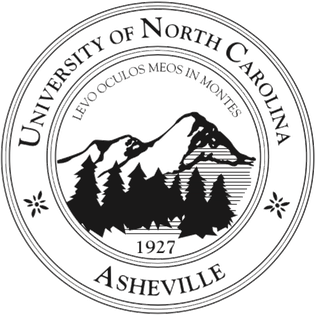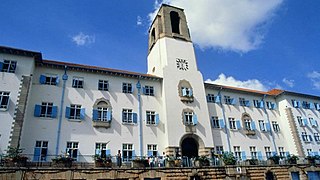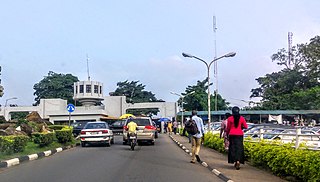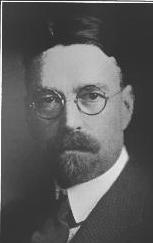
Tufts University is an American private research university on the border of Medford and Somerville, Massachusetts. It was founded in 1852 as Tufts College by Christian universalists who sought to open a nonsectarian institution of higher learning. It was a small New England liberal arts college until its transformation into a larger research university in the 1970s, though its corporate name is still "The Trustees of Tufts College". It is classified among "R1: Doctoral Universities – Very high research activity." Tufts emphasizes active citizenship and public service in all its disciplines, and is known for its internationalism and study abroad programs.

The State University of New York is a system of public colleges and universities in New York. It is the largest comprehensive system of universities, colleges, and community colleges in the United States, with a total enrollment of 424,051 students, plus 2,195,082 adult education students, spanning 64 campuses across the state. Led by Chancellor Jim Malatras, the SUNY system has 91,182 employees, including 32,496 faculty members, and some 7,660 degree and certificate programs overall and a $10.7 billion budget.

The University of North Carolina Asheville is a public liberal arts university in Asheville, North Carolina. UNC Asheville is the only designated liberal arts institution in the University of North Carolina system. UNC Asheville is a member of the Council of Public Liberal Arts Colleges.

The State University of New York at Buffalo commonly referred to as University at Buffalo (UB) or SUNY Buffalo, is a public research university with campuses in Buffalo and Amherst, New York. The university was founded in 1846 as a private medical college and merged with the State University of New York system in 1962. As of Fall 2018, the university enrolls 31,503 students in 13 colleges, making it the largest public university in the state of New York.
Lawrence "Larry" Seldon Bacow is an American lawyer, economist, author and university administrator, and the current 29th President of Harvard University. He assumed office on July 1, 2018, succeeding Drew Gilpin Faust. Prior to assuming the presidency, Bacow was the Hauser leader-in-residence at the Center for Public Leadership at Harvard's John F. Kennedy School of Government. He was previously at the Harvard Graduate School of Education and has been a member of the President and Fellows of Harvard College, one of the university's governing boards, since 2011.

Makerere University, Kampala is Uganda's largest and oldest institution of higher learning, first established as a technical school in 1922. It became an independent national university in 1970. Today, Makerere University is composed of nine colleges and one school offering programmes for about 36,000 undergraduates and 4,000 postgraduate. It recently was gutted by fire in September of 2020 and the cause of the fire is yet to be established

The University of Ibadan (UI) is a public research university in Ibadan, Nigeria. The university was founded in 1948 as University College Ibadan, one of many colleges within University of London. It became an independent university in 1963 and is the oldest degree awarding institution in Nigeria.
Grace Alele-Williams is an educator who made history as the First Nigerian Female Vice-Chancellor at the University of Benin. She was also the first Nigerian woman to receive a doctorate degree. She is a professor of mathematics education.

Steven Browning Sample was the 10th president of the University of Southern California (USC). He became president in 1991 and was succeeded by C. L. Max Nikias on August 3, 2010. Prior to his presidency at USC, Sample was the 12th president of the University at Buffalo (UB) in the State University of New York (SUNY) system from 1982 to 1991. He was succeeded at UB by Bill Greiner.
Jamshed Bharucha is a cognitive neuroscientist who has served in prominent leadership roles in higher education, and is currently the inaugural Vice Chancellor of SRM University, Andhra Pradesh. He has served as Distinguished Fellow and Research Professor at Dartmouth College, where his research and teaching were focused on education data science. He is President Emeritus of Cooper Union, a college located in Manhattan, New York City, having served as the 12th President of Cooper Union from July 2011 through June 2015.

Elmer Hewitt Capen was the third president of Tufts College, serving from 1875 to 1905. He was born in Stoughton, Massachusetts. Capen graduated from Tufts in 1860, and while there he was a founding member of the Kappa Charge of Theta Delta Chi. Also, while still an undergraduate, he was elected to, and served in, the Massachusetts House of Representatives. He relinquished his seat after one term in order to finish his studies and graduate with his class. After his graduation from Tufts, he studied at Harvard Law School, practiced law for a short time, and then became a Universalist minister.
The American Council on Education (ACE) is a nonprofit 501(c)(3) U.S. higher education association established in 1918. ACE's members are the leaders of approximately 1,700 accredited, degree-granting colleges and universities and higher education-related associations, organizations, and corporations. The organization, located in Washington, DC, conducts public policy advocacy, research, and other initiatives related to key higher education issues and offers leadership development programs to its members and others in the higher education community.

Martin Meyerson was an American city planner and academic leader best known for serving as the President of the University of Pennsylvania (Penn) from 1970 to 1981. Meyerson, through his research, mentorship, essays and consulting, exerted formative influence on U.S. postwar urban policy at the municipal and federal levels.
John Stuart Allen was an American astronomer, university professor and university president. He was a native of Indiana, and pursued a career as a professor of astronomy after receiving his bachelor's, master's and doctorate degrees. Allen was the interim president of the University of Florida located in Gainesville, Florida, and subsequently became the founding president of the University of South Florida in Tampa, Florida.
Donald Bruce Johnstone, also known as D. Bruce Johnstone, is an American educator who served as Chancellor of the State University of New York (SUNY), headquartered in Albany, New York; and President of Buffalo State College, in Buffalo, New York. Johnstone is also Professor Emeritus at the University at Buffalo (UB). He was named SUNY Chancellor Emeritus in 2014.
Clifford Cook Furnas was an American author, Olympic athlete, scientist, expert on guided missiles, university president, and public servant. He was first cousin of the author Evangeline Walton.
The history of Tufts University, originally Tufts College, can be traced back to 1847 when the Universalist Church set up convention for the creation of a university for the parish. In 1858, the college was established when Boston businessman Charles Tufts donated 20 acres of land to the church to establish the college. It is the second oldest college that was founded in the Boston area.. During the 19th century the college grew. The official college seal, bearing the motto Pax et Lux was adopted in 1857. The school colors of brown and blue were selected in 1876. Tufts' mascot became Jumbo when P.T. Barnum gave a natural history museum to the university.










